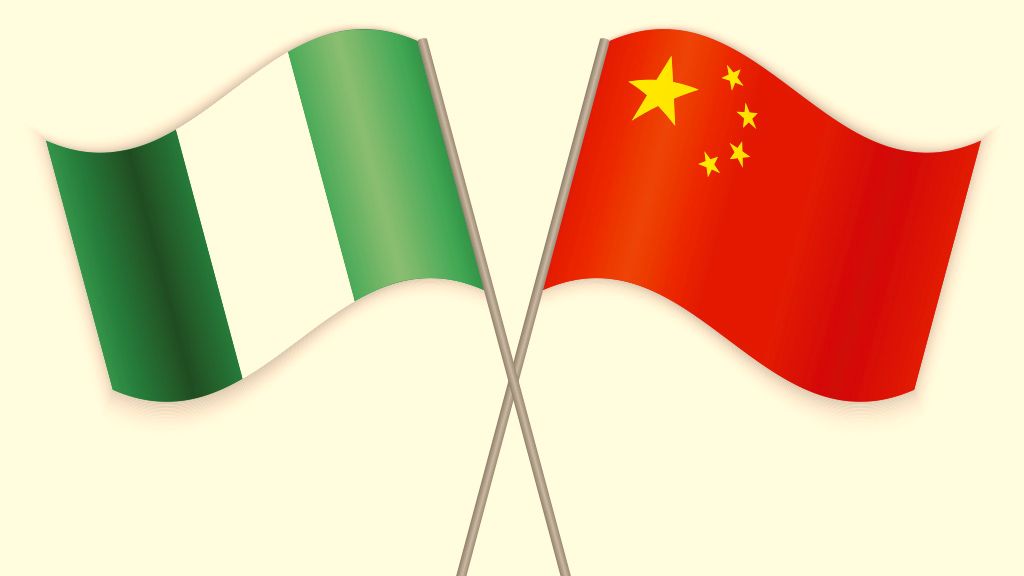The value in trade deficit between Nigeria and China widened in the outgone year with the latter recording 91.4 per cent trade surplus between January and November as its export rose to $16.33 billion.
Statistics from General Administration of Customs of the People’s Republic of China (GACC) indicated that export to Nigeria in January was $1.63 billion; February, $1.62 billion; March, $1.37 billion; April, $1.49 billion; May, $1.48 billion; June, $1.44 billion; July, $1.28 billion; August,$1.156 billion and September, $1.45 billion.
Also, Nigeria’s exports to China in January stood at $208.9 million; February, $174.8 million; March, $147.6 million; April, $118.8 million; May, $187.2 million; June, $160.4 million; July, $164.2 million; August, $161.5 million and September, $105.8 million.
In October 2024, it was revealed that the top exports of China to Nigeria were synthetic filament yarn woven fabric, $84.8 million; motor vehicles; parts and accessories, $49.2 million; telephones, $42.1 million; bathroom ceramics, $41.3 million and electrical transformers, $40.1 million.
Also in the same month, top imports of China from Nigeria were petroleum gas, $46.6 million. Other are mineral, $25.1million; uranium and thorium Ore, $7.05 million; niobium, tantalum, vanadium and zirconium ore, $7.03 million and refined copper, $4.05 million.
Meanwhile, the Consul General of the People’s Republic of China in Lagos, Ms. Yan Yuqing, had explained that bilateral trade between China and Nigeria exceeded $17.1 billion as of October 2024.
Highlighting the strengthened economic ties, Yuqing acknowledged the active participation of tens of thousands of Nigerian entrepreneurs in major trade events, including the Canton Trade Fair and the China International Import Expo.
She noted that throughout 2024, China and Nigeria maintained steadfast support for one another, fostering mutual benefits and achieving win-win outcomes in their collaboration.
Yuqing said: “The consular district of the Chinese Consulate General in Lagos covers 20 states in the southern part of Nigeria, which are economically developed, rich in natural resources, and have broad prospects for development.
“Over this year, in addition to promoting the deepening of economic and trade, education, medical and health cooperation between Lagos State and China’s Jiangxi Province and Qingdao City, I have also visited Ogun State several times and travelled to Edo State, Ekiti State, Ondo State, and Cross River State.
By strengthening cooperation in industrialisation, agricultural modernisation and talent development, we have deepened the sister city relationships between Edo State and Fuzhou City, and Ondo State and Linyi City. “Over the past year, China and Nigeria have achieved much in the field of infrastructure and engineering contracting.
In January this year, I had the honour of witnessing the largest container ship in Nigeria’s history docking at Lekki Deep-sea Port. This marks the largest deep-sea port in West Africa, built by a Chinese company, as a new global “business card” for Nigeria.”
In September, New Telegraph reported that the influx of cheaper Chinese goods into the Nigerian market led to the decline of local manufacturing industries and job losses as China trimmed shipments of its imports from Nigeria to $238 million, leading to a huge trade trade deficit of 81.7 per cent or $1.06 billion within one month.
In July, 2024, it was indicated China’s petroleum gas imports from Nigeria has decreased by 49.2 million or 51.3 per cent, pesticides, $61.2 million or 72.8 per cent and raw aluminum $10.3 per cent or 81.7 per cent.















